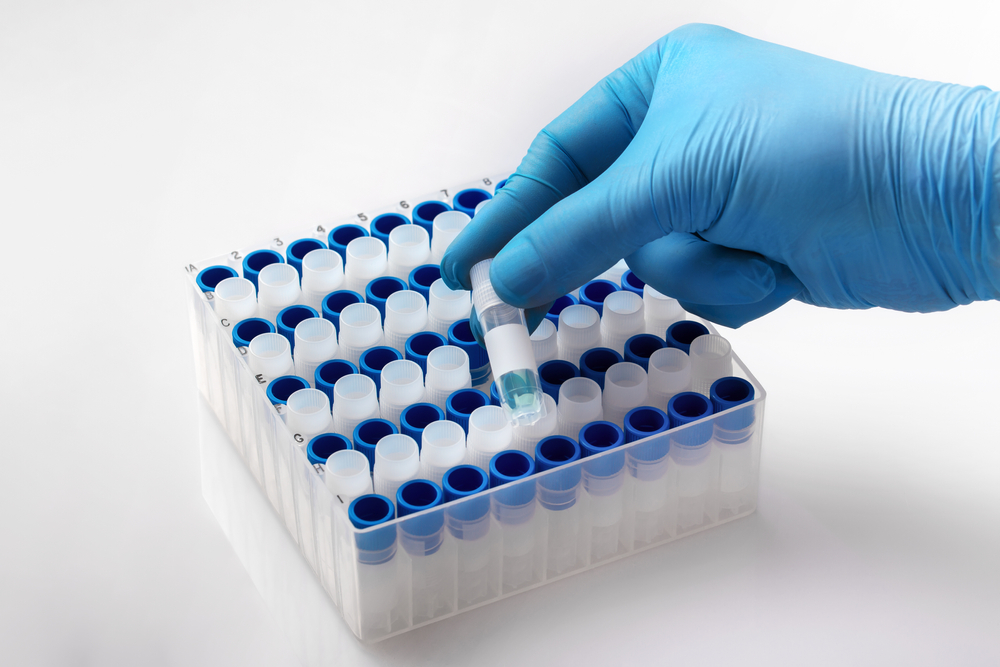Medical and scientific professionals often require specialized conditions to either store sensitive biological materials or to purchase them for academic or clinical use. This is where biorepositories come in. In this article, we explain what is a biorepository, how to choose a reputable one for your needs, and more.
What is a biorepository?
A biorepository is a laboratory facility that houses biospecimens taken from the human body and other living organisms—including tissue, urine, cells, blood, plasma, DNA, and RNA. Beyond gathering these samples, a biorepository is crucial in cataloging, processing, storing, and distributing specimens from its inventory when scientists require them for clinical or research purposes.
A biobank is a similar storage facility that deals with samples from humans, but can include samples of animals, plants, and various non-human species as well. Biobanks are typically set up for a certain purpose, such as hospitals, universities, or pharmaceutical companies.
What are the primary functions of biorepository companies?
Biorepository companies are responsible for more than just collecting biospecimens. They provide continuous, safe storage at exact temperature, humidity, and other environmental requirements. Biorepository companies keep these assets viable and available for distribution to scientists and clinicians who request them. Here is an overview of the primary functions of a biorepository service.
Collecting Samples
Upon collection of biomaterials, a biorepository uses a state-of-the-art lab inventory management system (LIMS) to authenticate, sort, and store each sample. This includes determining needs for specific temperature controls, humidity levels, and other processing tasks.
Processing Samples
Biorepository personnel often take samples through processes defined by the highest levels of regulatory standards to reduce variations in sample handling and assure quality of samples before they are stored for later use.
Storing Samples
Samples are then entered into inventory where they await usage by scientific and medical professionals. Each sample has exacting environmental standards; therefore, the biorepository must have equally precise infrastructure of freezers, refrigerators, reach-in, walk-in, and ambient storage areas to control temperature, humidity, and other factors.
What are the standard operating procedures (SOPs) for biorepositories?
In order to provide samples fit for research or clinical use, biorepositories follow standard operating procedures (SOPs) to dictate how personnel collect, process, store, and distribute samples. This helps define relevant thresholds for impurities, and minimize variance in handling methods, and ultimately, assure sample quality.
At Precision Stability Storage, all of our reach-in, walk-in, and ambient storage spaces comply with Current Good Manufacturing Practices (cGMPs)—strict regulations enforced by the U.S. Food and Drug Administration including installation, operational, and performance qualifications. These standards are put in place to ensure that our Biotech and pharmaceutical customers can have the confidence that their products are always being stored at the specified conditions while under our care.
How to identify reputable biorepositories
There are a number of qualities that separate reputable biorepository companies from the rest. When shopping for a place to store or buy quality biospecimens, consider the following factors:
Storage Equipment – The integrity of the material stored in a biorepository is critical when preserving biospecimen, and drug substances and reliable cold storage equipment play an essential role. A biorepository outfitted with industry-leading temperature-controlled equipment from reputable companies such as PHCbi, MVE, and Parameter Generation & Control, provides safe and secure storage options ranging from +4°C to -196°C.
Continuous Monitoring – A reputable biorepository won’t turn a blind eye to your precious biospecimens—ever. Look for a facility with validated continuous monitoring (CFR 21, part 11 compliant), offering a continuous stream of data, reports, and alarms to protect your materials at all times.
Redundancy and Backup – Find a facility that employs numerous failsafes to protect your samples. Backup generators, overflow storage, and contracts with local equipment technicians are examples of good redundancies.
Security – you’ll have the peace of mind that only trained authorized personnel are handling your samples when the biorepository employs top-notch security protocols like locking chamber doors, badge reader access, and multiple clearance levels.
At Precision Stability Storage, we offer coast-to-coast biorepository storage with four cGMP-compliant facilities across the United States. Whether your company specializes in life sciences, pharmaceuticals, biotechnology, or medical devices, we have biospecimen storage to meet your needs, complete with backup contingencies and overflow capacity. To learn more, visit us online or request a quote today.

